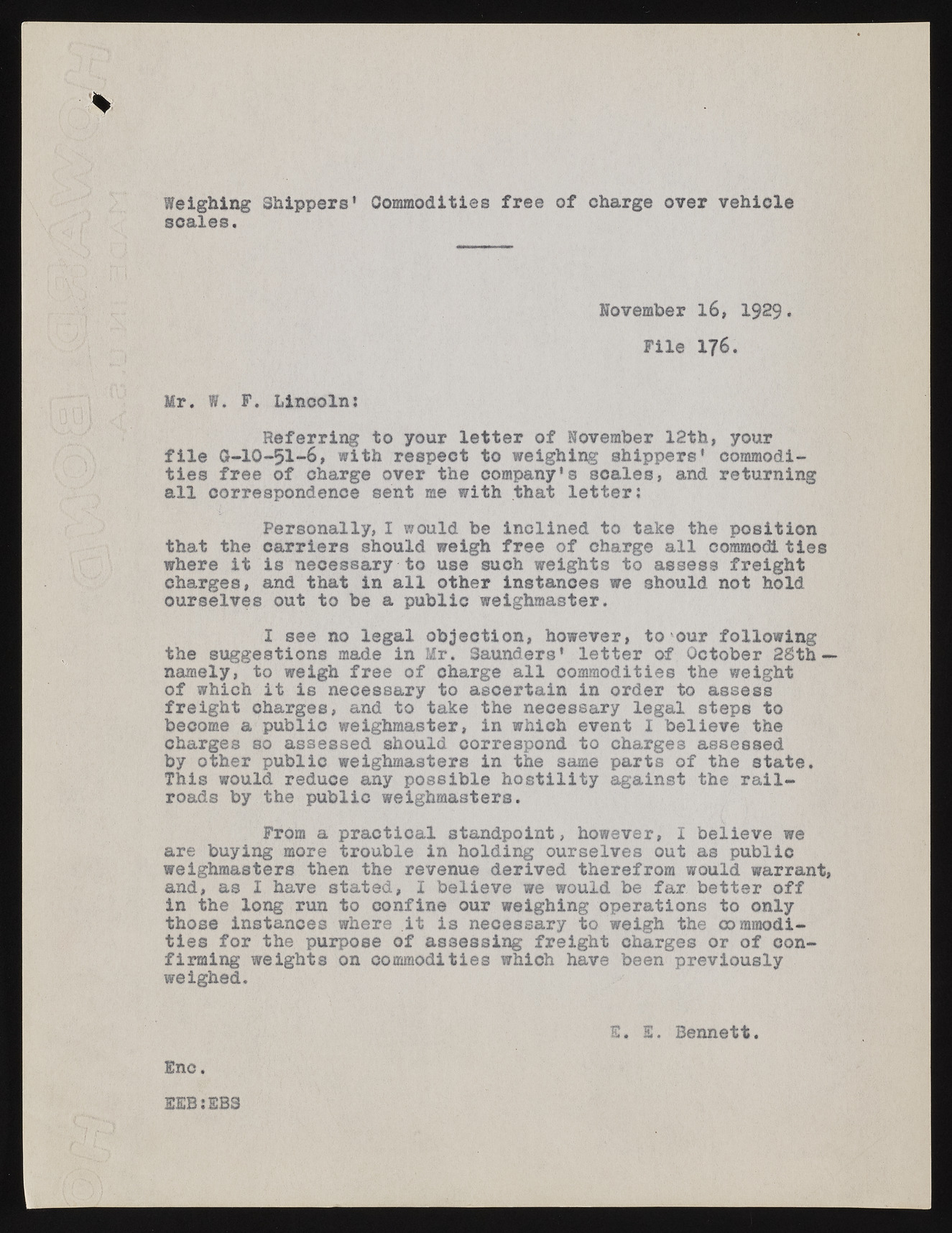Copyright & Fair-use Agreement
UNLV Special Collections provides copies of materials to facilitate private study, scholarship, or research. Material not in the public domain may be used according to fair use of copyrighted materials as defined by copyright law. Please cite us.
Please note that UNLV may not own the copyright to these materials and cannot provide permission to publish or distribute materials when UNLV is not the copyright holder. The user is solely responsible for determining the copyright status of materials and obtaining permission to use material from the copyright holder and for determining whether any permissions relating to any other rights are necessary for the intended use, and for obtaining all required permissions beyond that allowed by fair use.
Read more about our reproduction and use policy.
I agree.Information
Digital ID
Permalink
Details
Member of
More Info
Rights
Digital Provenance
Publisher
Transcription
? Weighing Shippers‘ Commodities free of charge over vehicle scales. November 16, 1929* File 176. Mr. W. F, Lincoln; Referring to your le tte r of November 12th, your f i l e 0- 10- 51- 6, with respect to weighing shippers' commoditie s free of charge over the company's scales, and returning a l l correspondence sent me with that le tte r: Personally, I would be inclined to take the position that the carriers should weigh free of charge a l l commodL ties where it is necessary to use such weights to assess freigh t charges, and that in a l l other instances we should not hold ourselves out to be a public weighmaster. I see no le g a l objection, however, to o u r following the suggestions made in Mr. Saunders' le tte r of October 2Sth — namely, to weigh free of charge a l l commodities the weight of which i t is necessary to ascertain in order to assess freigh t oharges, and to take the necessary legal steps to become a public weighmaster, in which event I believe the charges so assessed should correspond to charges assessed by other public weighmasters in the same parts of the state. This would reduce any possible h o stility against the r a i l roads by the public weighmasters. From a p ractical standpoint, however, I believe we are buying more trouble in holding ourselves out as public weighmasters then the revenue derived therefrom would warrant, and, as I have stated, I believe we would be fa r better o ff in the long run to confine our weighing operations to only those instances where it is necessary to weigh the commoditie s fo r the purpose of assessing freigh t oharges or of confirming weights on commodities which have been previously weighed. S. S. Bennett. Enc. EEB:£B3

